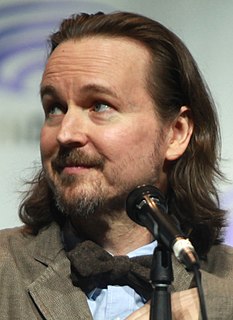A Quote by Zach Braff
Related Quotes
What I thought was so great about Rise [of the Planet of the Apes ] was that it wasn't a retelling; it was an entering of the universe at a different point. So it's Planet of the Apes. We already know the ending. There's no mystery in that! It becomes Planet of the Apes. So it's not about what is at the end; it's about how did we get there? And that enabled something that was totally fresh, which was an ape-point-of-view movie.
We can learn a great deal from whales. It is the same lesson we can learn from our close genetic relatives, the bonobo apes of the Congo. Here mothers have a great deal of authority, there is very little violence (with no signs of sexual violence against females), and their society is held together by sharing and caring rather than by fear and force.
If 'Star Wars' wasn't enough to prepare me for a dark future, there was the 'Planet of the Apes' franchise, conveniently repeated for me in Los Angeles on KABC's Channel Seven 3:30 movie. Apes enslaving humans! Mutants with boils and an atom bomb! Ape riots in Century City! They killed baby Caesar's parents!

































